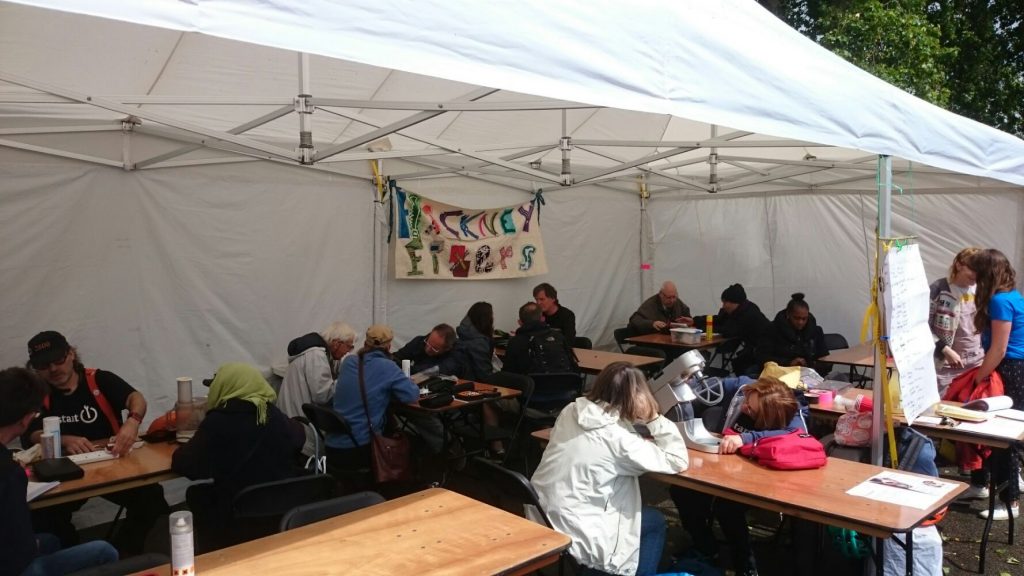When the focus is on practices, the so-called “value-action gap” can no longer be interpreted as evidence of individual ethical shortcomings or individual inertia. Rather, the gap between people’s attitudes and their “behaviour” is due to systemic issues: individuals live in a society that makes many pro-environmental arrangements rather unlikely.
Month: June 2019
There’s nothing really in-depth in this particular article, but I like the fact that representatives from both movements dialled in to a workshop in Manchester, England. Being able to so easily communicate remote can help us build international solidarity.
https://amp.dev/about/email.html
#AntiDisintermediation #CounterAntiDisintermediation
Some notes to self of things I found interesting:
Setting:
(setq evil-move-cursor-back nil)
will navigate you to after the last paren.
See: https://github.com/syl20bnr/spacemacs/issues/646
https://gist.github.com/bryhal/4129042
The table is really helpful for when you need to do some analysis on a date series and you have days where nothing happened, but you want those days included.
Have you tried Granary?
https://granary.io/?site=instagram
I haven’t tried it with instagram, but it works great for twitter.
On the one hand:
“How AI is helping make the world greener” <– article sponsored by Microsoft
https://www.charitydigitalnews.co.uk/2019/05/31/how-ai-is-helping-make-the-world-greener/
Microsoft is supporting organisations using innovative technologies to solve the world’s biggest challenges, empowering them to create a more sustainable planet through AI
On the other:
“How Google, Microsoft, and Big Tech Are Automating the Climate Crisis”
https://gizmodo.com/how-google-microsoft-and-big-tech-are-automating-the-1832790799
Microsoft Azure has sold machine vision software to Shell, and is powering its all-out “machine learning push.” It has helped BP build an AI tool to help determine how much oil in a given reserve is recoverable. And Microsoft’s data services are helping XTO, a subsidiary of Exxon, “to gain new insights into well operations and future drilling possibilities.”
Hmmmm.

